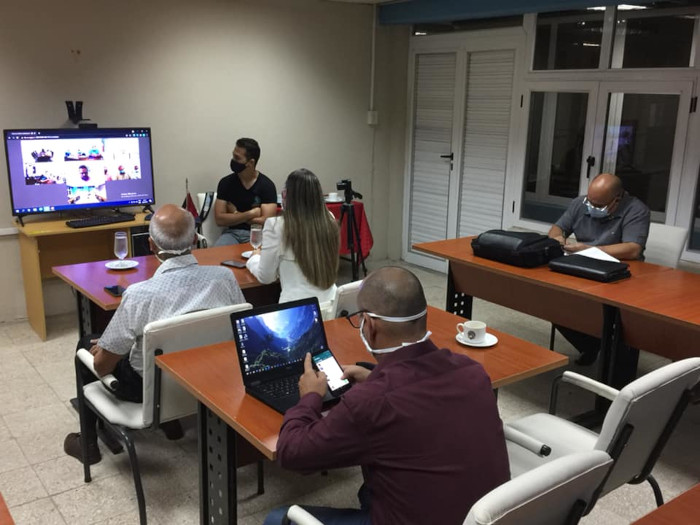CAMAGÜEY.- Education, one of the fundamental pillars of our society, does not escape the longest economic, commercial and financial blockade in history. The University of Camagüey Ignacio Agramonte Loynaz (UC) is one of the centers that has had to overcome the most obstacles of this type, something that, far from minimizing it, makes it grow every day.
From the point of view of international projects, the greatest effects are perceived in the difficulty to send money due to the restrictions imposed by the genocidal policy on financial transactions, as well as in the limitations on the importation of equipment, reagents and other materials.
In this sense, the VLIR project, one of the UC's main international agreements, aimed at strengthening science, technology and innovation capacities to contribute to the economic, social and inclusive development of the region, is closely affected by the North American government's policy.
"To cite just one example, we have not been able to improve the production of food and social welfare in the province through recreational technologies due to the impossibility of making bank transfers of the amounts of the budget allocated to them," explained Dr. C Yailé Caballero Mota, Director of International Relations at UC.
In the field of computerization, the prohibition to access Internet platforms, free for the rest of the world, less for Cuba, is regretted. Currently, more than 250 blocked portals, sites and web services are registered. Hewlett-Packard (hp), Fujitsu, Lenovo, Samsung, Intel, LG, are some of those that do not allow the download of drivers and documentation from their web portals.
On the other hand, “the professors of the University cloister receive a strong restriction to publish in some of the first group magazines such as FOKUM (for Foreign Languages) and also in Law magazines and in the specialties of Chemistry, Chemical Engineering, Food Sciences and Economic Sciences ”, added Caballero Mota.
In turn, they cannot receive bibliographic materials for teacher improvement, in careers such as Foreign Languages, Agricultural Sciences, Chemical Engineering, Architecture and Civil Engineering, since postal exchange with North American universities is not allowed.
Regarding the income lost from exports of goods and services, it was known that the more than 20,000 dollars generated during 2020 by UC professors who teach classes in the People's Republic of China, have not yet entered the country, since the Chinese banks that can make the transfer have shares with the United States and the blockade does not allow such transactions. The same happens with the Dominican Republic.
Graduating competent professionals in Cuba not only depends on the ability of the students and the training of teachers, but also on how to overcome a policy that seeks to harm us at all costs. However, for several decades they have proven that despite being a reality the prohibition of access to updated information and the limitations to academic and bibliographic exchange, this does not stop them.
- Translated by Linet Acuña Quilez



